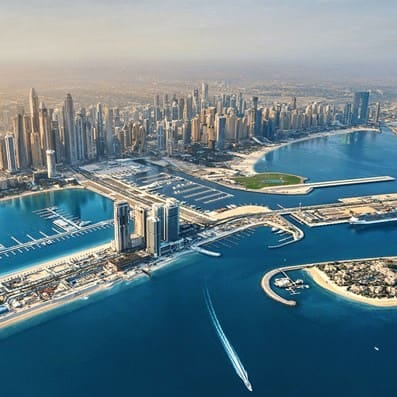Mark Twain once said, "History doesn't repeat, but it rhymes." What does this mean?
It means we see patterns. Social and political life is governed by certain truths.
"Power corrupts, and absolute power corrupts absolutely" comes to mind.
Or, as John Maynard Keynes put it, "In the long run, we're all dead."
These basic human truths create the patterns of history.
Twain's observation sprung up as I studied this week's Jewish Torah reading. I studied it right after finishing reading today's New York Times.
Dubai vs. Gaza
Thomas Friedman’s opinion piece in The Times compared Dubai with the Gaza Strip.
On one level, they are quite similar. They're around the same size and lack natural resources. 15 years ago, they had a similar-sized population.
But look at them now. It feels laughable to mention them together.
Dubai is wealthy, and relatively free compared to other Arab nations. Women play an important role in its bustling economy. Tourism and business revenue abound. It is a tremendous success story.
And of course, look at Gaza. It is filled with utter destruction and poverty. Its heroes are terrorists, not economic ministers, as in Dubai.
Gaza could have been like Dubai. It's quite possible. Its government had a blank slate in 2005.
Yes, you can say Israel maintained some level of control in Gaza.
But in 2005 there was no Israeli presence in Gaza. None. And we know what has happened over the next 18 years.
The One-Word Answer
What explains the difference? In one word, leadership.
Dubai benefited from the leadership of the United Arab Emirates, which is not perfect, but is committed to creating a modern functioning state. As Friedman put it,
"Dubai has benefited from two generations of monarchs in the United Arab Emirates who had a powerful vision of how the U.A.E. in general and the emirate of Dubai in particular could choose to be Arab, modern, pluralistic, globalized and embracing of a moderate interpretation of Islam.
Their formula incorporates a radical openness to the world, an emphasis on free markets and education, a ban on extremist political Islam, relatively little corruption, a strong rule of law promulgated from the top down and a relentless commitment to economic diversification, talent recruitment and development."
And what has Gaza had? In 2007,
"Hamas violently ousted Fatah from Gaza, killing some of its officials and making clear that it would not abide by the Oslo Accords or the Paris protocol. That led to the first Israeli economic blockade of Gaza — and what would be 22 years of on-and-off Hamas rocket attacks, Israeli checkpoint openings and closings, wars and cease-fires, all culminating on Oct. 7."
The Wisdom of Joseph
Leadership makes all the difference. Now let's go back to our Torah reading. It's the culmination of the Joseph story.
In it Jacob his father blesses Joseph's two sons, Ephraim and Menasha. These are children born to Joseph while he was the leader of Egypt.
Joseph and the Pharaoh he served were visionary leaders. They chose a path to make Egypt safe and prosperous.
You remember the seven years of plenty followed by the seven years of famine.
Joseph prepared the country in the seven years of plenty so that it could survive the seven years of famine. That’s wisdom.
So how do we explain why certain groups develop wise leaders and others do not? What explains the difference between the UAE and Gaza?
In the short run, luck plays a huge role. It matters when a leader comes to power. It matters how old he is. It matters what else is going on in the world.
The Winston Churchill of 1914, for example, was very different than the Churchill of 1940.
But in the long run, as Twain reminds us, history rhymes. It flows in patterns.
Survival of the Freest
One pattern we do see is that democracies ultimately produce better leadership over time, because when leaders respect and reflect the needs and will of the people–what data scientists call “the wisdom of the crowd”–they are more dynamic and open.
This form of leadership is often slow and messy. It takes time. It gets temporarily off track.
But its dynamism is its greatest strength. It is resilient, by nature. It adapts, by nature So do we.
Nations and individuals face turning points. These are the key moments where we make fateful choices.
Our Future
May we make them governed by ideals, not convenience. May we make them for the sake of freedom and human dignity, not power.
Perhaps most importantly, may we remember that the times when it is hardest to make those choices are the times when they matter the most.
When the right thing is easy, everyone does it. When it's hard, we need faith and wisdom.
When we feel ourselves losing hope, succumbing to despair and cynicism, that's when making the hard, human choice is the right one.
I pray our leaders here hear it; those in the Middle East hear it; and we each hear it in our hearts and souls.







Rabbi, Well written and very insightful. D